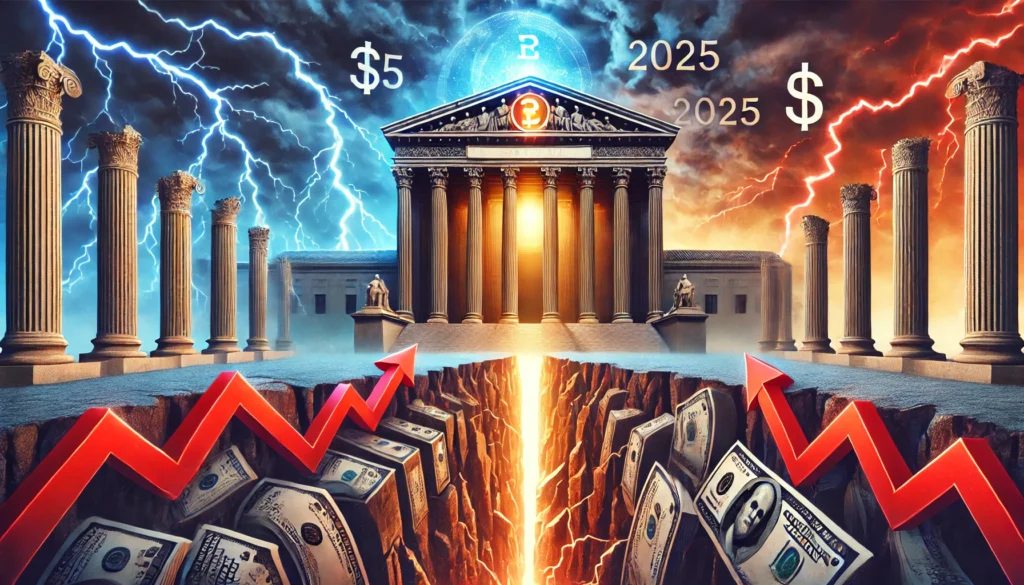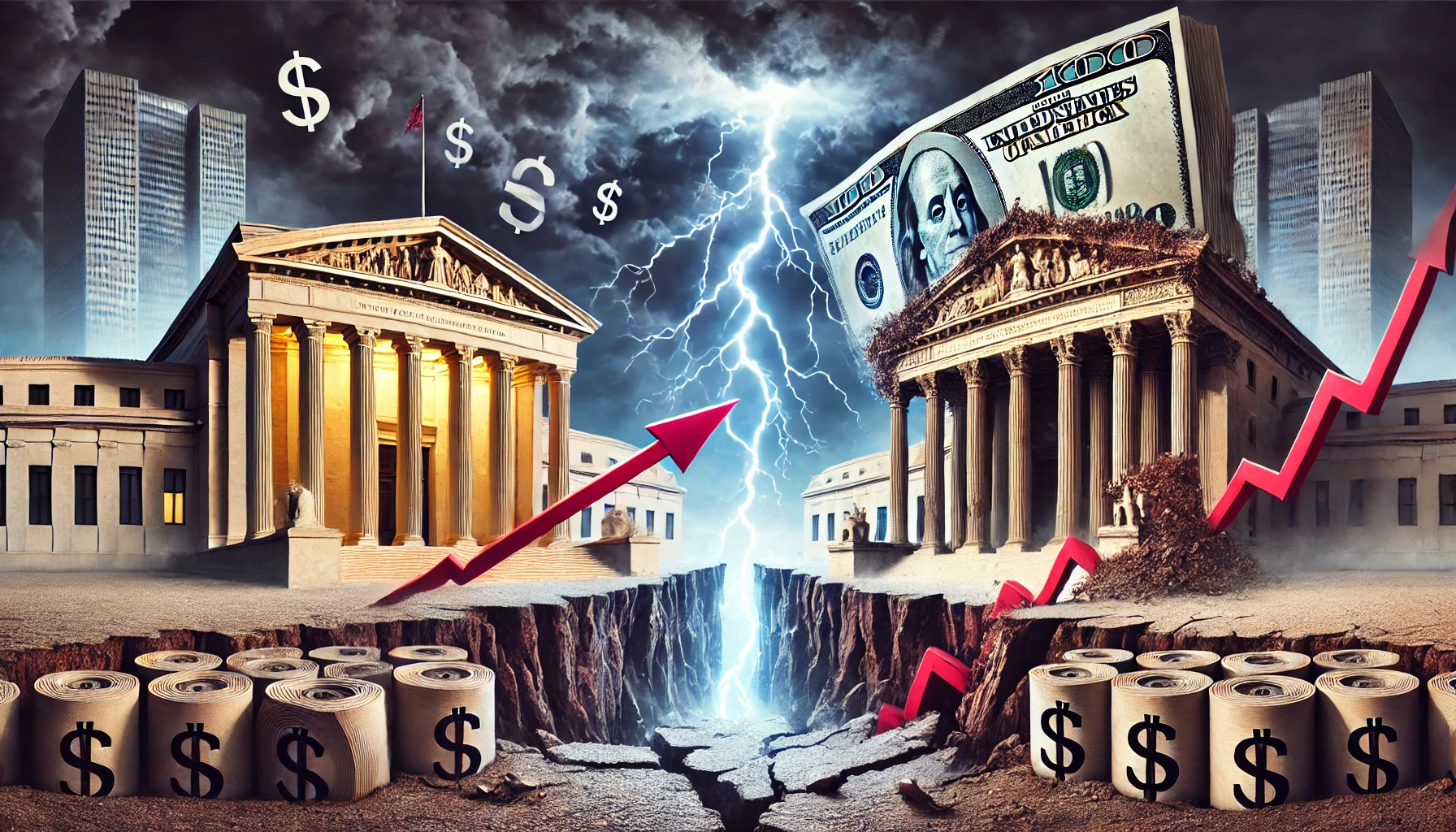When most people think about interest rates, they picture the Federal Reserve announcing a cut or hike, and the markets instantly falling in line. For decades, that’s how things have worked. Fed would send signals and bond yields, and mortgage rates, and even stock valuation would modify as well.
But something unusual is happening now—and it’s not just in the United States. Across the world’s largest economies, central banks appear to be losing control over interest rates, and the bond market is calling the shots. The implications of that change on investors, homeowners and ordinary Americans in search of an uncertain financial future are enormous.
What is happening, why does it matter, and how could it affect your money? Let’s take it apart.
The Bond Market vs. Central Banks
Normally, when the Fed signals it wants to lower interest rates to stimulate the economy, long-term bond yields (like the 10-year Treasury) should also move lower. But right now, the opposite is happening: bond yields are rising.
That’s a major red flag. It means the bond market—made up of global investors who buy and sell government debt—doesn’t believe the Fed’s story. Instead, the market is pricing in higher risks, from sticky inflation to massive government borrowing.
And this isn’t just an American problem. Bond yields in the U.K., Japan, Germany, and France are also rising, even as their central banks talk about easing. In simple terms, the people holding the money are no longer listening to the policymakers.
Warning Signs of Economic Trouble
The disconnect between central banks and the bond market isn’t happening in a vacuum. There are other worrying signals flashing at the same time.
- Weak Jobs Data: A recent negative U.S. jobs report, especially in June, raised fears that the economy is slowing down. With the stagnation of job growth, the driver of the American economy consumer spending is also undermined.
- Inverted Yield Curve: For nearly two years, short-term rates have been higher than long-term rates. This so-called “inverted yield curve” has been one of the most reliable predictors of recessions in U.S. history.
- The Bear Steepener: More recently we are witnessing something even more worrying the steepening of the yield curve due to the faster increase of long-term rates than short-term. Known as a “bear steepener,” this often signals that investors have lost confidence in the government’s ability to control long-term debt and inflation. Historically, bear steepeners have appeared just before recessions.
All of these indicators point in the same direction: a financial system under stress.

What Rising Yields Mean for You
You may be asking yourself–so what does all this financial talk mean to me? Quite a lot, actually.
1. Stocks
When interest rates increase, it becomes expensive to borrow money by the companies. That squeezes profits, especially for high-growth tech companies that rely on cheap capital to expand. For investors, that means stock valuations could come under pressure, particularly in sectors that have been driving the market higher.
2. Real Estate
Mortgage rates move closely with long-term bond yields. As yields climb, so do mortgage rates. That makes homes less affordable, pushes buyers out of the market, and can lead to stagnant or even falling home prices. If you’re looking to buy, refinance, or sell, this is a space you’ll want to watch carefully.
3. Hard Assets
At this point, the interesting part comes in. Gold, which usually moves in the opposite direction of real yields, has been rising alongside them. That suggests investors are losing trust in traditional financial assets and are seeking safety in alternatives. Bitcoin, too, is increasingly seen as a hedge against government debt and inflation, since it operates outside the banking system altogether.
Why This Matters for the Average American
If you’re a working professional, a homeowner, or even just someone with a retirement account, these shifts affect you directly. The cost of borrowing can restrain the increase of wages and employment. Expensive mortgages make homeownership tougher. And volatile markets put retirement savings at risk.
But there’s also an opportunity here. Economic stress tends to create two types of outcomes: those who get caught unprepared, and those who adjust early.
How to Navigate an Uncertain Future
The person who hosted the video which made this discussion appear, ended with a crucial fact: namely, diversification is important. Sometimes an all-or-nothing bet on a single type of asset, be it stocks, real estate, or crypto, can backfire in a volatile economic environment.
These are some of the measures you can take in practice:
- Reorganize Your Portfolio: In the case of high exposure to high growth tech stocks, then reorganize with more defensive industries such as health care or utilities.
- Keep an eye on housing costs: If you are planning to purchase a house, you should remember that the rates of mortgage may remain higher than anticipated.
- Alternatives: A modest investment in gold or Bitcoin can be a hedge against financial crisis, but each is risky.
- Stay Liquid: It is good to have a little cash on hand to allow you some flexibility, particularly in case of an opportunity during a downturn.
Final Thoughts
The bond market is making it very clear that the days of the central bank having total control over interest rates might be coming to end. The increasing yields, poor job statistics and weird patterns such as the bear steepener signals that the world economy is on uncharted ground.
To Americans, it is not merely a financial headline- it tells you to be more attentive to your investments, your debt, and your long-term financial strategy.
Recessions are not fun; however, they can be dealt with by being prepared and making astute decisions. Diversification is your best weapon in time of uncertainty and knowledge is your best tool.
Disclaimer: This article is informational and is not to be considered as financial advice. When making investment decisions, always seek the advice of a certified financial advisor.
Follow Us : youtube
Also Read : Can the U.S. Citizens who are Unemployed get Loans : 2025


